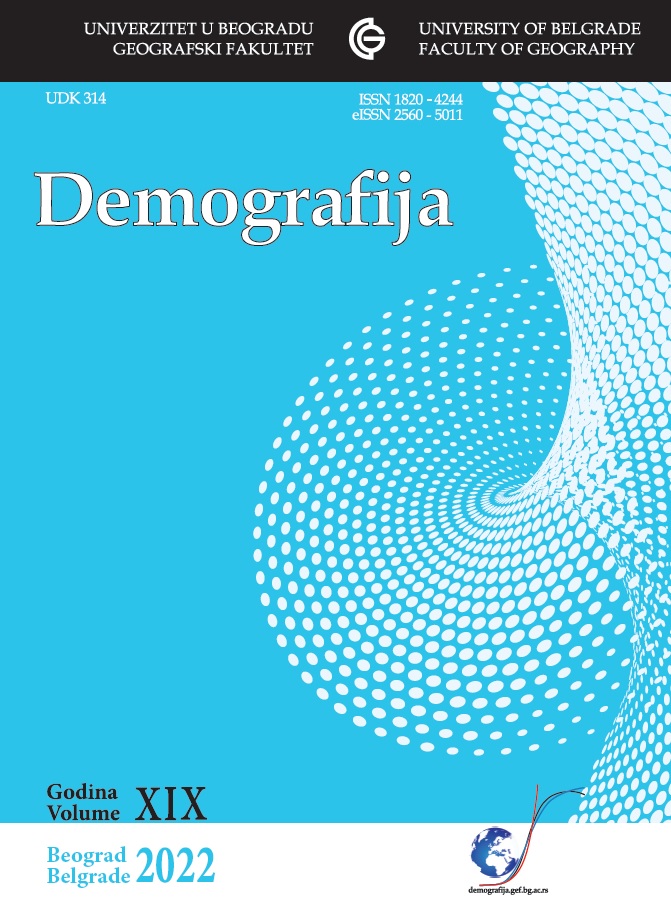DIFERENCIJALNI DEMOGRAFSKI RAZVITAK I ELEKTORALNA HOMOGENIZACIJA ETNIČKIH I KLASNIH IDENTITETA U SAVREMENOJ TURSKOJ
DIFFERENTIAL DEMOGRAPHIC DEVELOPMENT AND ELECTORAL HOMOGENIZATION OF ETHNIC AND CLASS IDENTITIES IN MODERN TURKEY
Author(s): Miodrag PantovićSubject(s): Social Sciences, Geography, Regional studies, Sociology, Demography and human biology
Published by: Географски факултет, Универзитет у Београду
Keywords: ethnclass; modernization; differential demographic development; political mobilization; homogenisation
Summary/Abstract: Political, and particularly electoral, consequences of the differential demographic development of ethnic and religious groups within societies have become the subject of interest of the relatively new discipline of social sciences, political demography. The three main ethnclass groups in Turkey have gone through different stages of demographic transition at different periods in correlation with the differential levels of economic development and education. First, demographic transition occurred within the secular part of society after the Second World War. Then it affected the traditional and rural part of the ethnic Turkish group where the high level of the mass immigration to the urban areas has commenced from the sixth decade of 20th century and finally, it stricken the Kurdish population in the Southeast of Turkey. The process of forming ethnic, linguistic and class identities in Turkey was fairly complex depending on the adoption of various theories of the nation formation corresponding to the domestic and international context. Turkey belongs to the group of societies where one of the largest levels of TFR disparities between certain regions of the country and different ethnic and linguistic groups are presented. The differential demographic development of these groups, along with the combination of unequal economic development and social tensions, has led to mass political mobilization and electoral homogenization, particularly of the Kurdish ethnic community and the religious population of ethnic Turks reflecting the election outcomes. The bloc voting for the parties that represent the group interest of the ethnclass groups prevailed. The secular part of the society that used to control the economic and political power since the creation of the modern Turkish republic, has failed to preserve its power due to electoral defeats, although its elite has implemented various forms of political actions in order to suppress the electoral rights of the more traditional part of society and the Kurdish population, including military dictatorships and coups. Since the beginning of the XXI century, the convergence of fertility between the secular and traditional ethnic Turks has been completed due to the massive increase in urbanization and education, particularly of women in more traditional families. One of the consequences of modernization is the increase in atheism and general irreligion among the younger population. As a result of the conflict in Syria, Turkey received the largest number of refugees from that country, which, along with the economic crisis, caused an increase in anti-migrant sentiment in society and the appearance of the first political movements directed against immigration.
Journal: Demografija
- Issue Year: 2022
- Issue No: 19
- Page Range: 21-37
- Page Count: 17
- Language: English, Serbian

